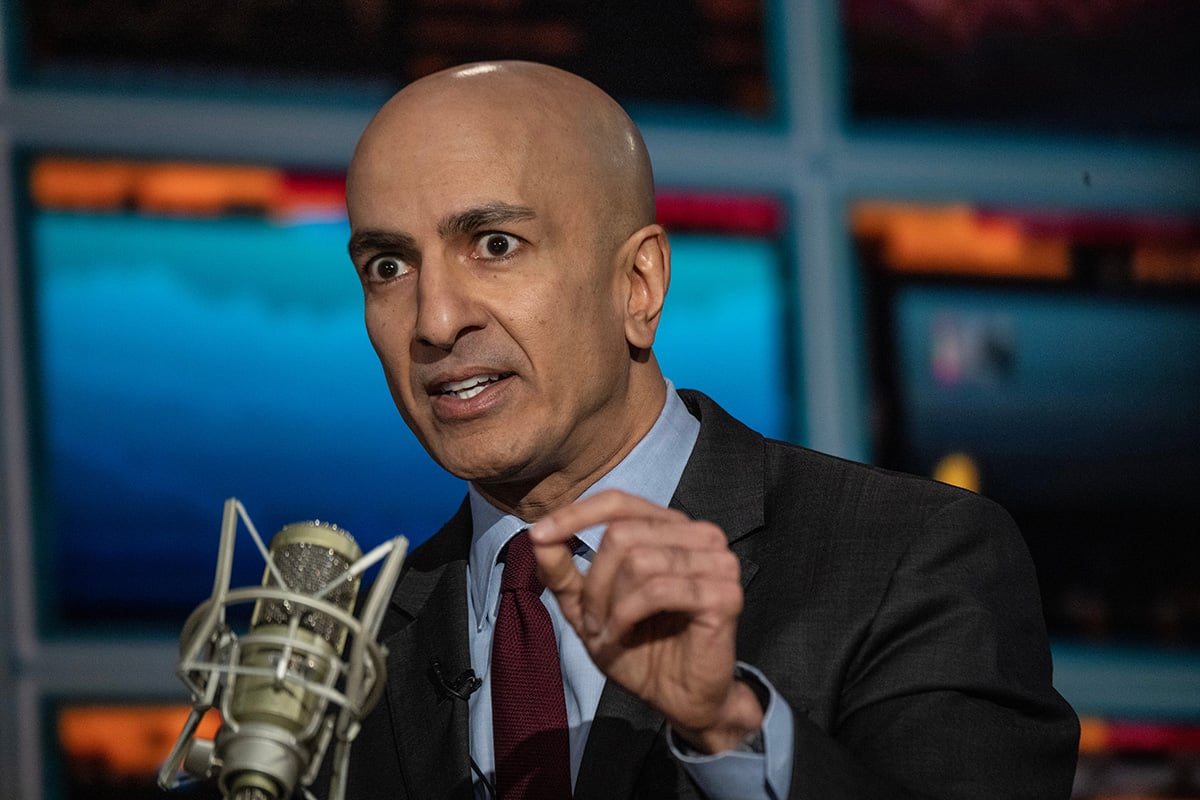
Senator Bernie Sanders introduced anew Medicare for All proposal, acting to keep healthcare policy atthe center of the race for the 2020 Democratic presidentialnomination and marshaling support from four White House rivals fora single-payer plan to expand medical coverage.
|“Healthcare is a human right, not a privilege,” Sanders said ata Capitol Hill rally Wednesday. He said he wants to end the“international embarrassment” of the U.S. being the only majornation that doesn't guarantee health coverage to its citizens.
|He criticized healthcare executives' wealth and the high profitsof insurers and drugmakers. “Please do not tell us that this is arational healthcare system,” Sanders added.
|His proposal would replace private health insurance with agovernment-run plan that covers primary care, hospital stays, andprescription drugs for all Americans, dramatically changingAmerica's $3.5 trillion healthcare industry.
|Sanders, who also sought the Democratic nomination in 2016, hasbacked the concept for years and offered similar legislation in2013, when it attracted no co-sponsors. Of 14 Democratic senatorswho have signed on this time, four are competing with Sanders forthe Democratic nod: Kamala Harris, Cory Booker, Kirsten Gillibrand,and Elizabeth Warren. Gillibrand is the only fellow candidate whoattended the rally.
|With the plan's introduction, Sanders is setting the standardfor progressives in the healthcare debate even as the DemocraticParty is rallying to defend Obamacare. The Trump administration issupporting a suit in federal court that seeks to have the 2010health law cast aside as unconstitutional. Sanders' proposal ismore sweeping than the Affordable Care Act, and he's betting thatit will resonate with Democratic primary voters next year whencaucuses and primaries get underway.
|That position has been risky for some in the field. Harris drewattacks after she said at a January CNN town hall that she was forMedicare for All and that she would “eliminate all of that,”referring to the private health insurance industry. But her stafflater said she would favor more incremental approaches. Warren andBooker also have indicated they might consider other compromiseapproaches.
|Not everyone in the race agrees Medicare for All is the bestpath to gaining universal health coverage, with others offeringrival ideas including a “public option” as part of Obamacare.Senator Amy Klobuchar, a Minnesota Democrat, has never signed on toSanders' single-payer idea, and neither has Senator Michael Bennetof Colorado, a Democratic moderate who is expected to enter thepresidential contest soon.
|Klobuchar told reporters Tuesday that she instead favors apublic option, something she said can be achieved by using Medicareor Medicaid to extend more care to the uninsured.
|“I think that's going to get us more quickly onto the path ofuniversal healthcare,” she said.
|The proposal has no chance of becoming law, with the Senate inRepublican control and no GOP senators on board.
|The Democratic contenders lending weight to the proposal aresigning on to a concept that comes with a high price tag. Thenon-partisan U.S. Congressional Budget Office (CBO), which providescost estimates of legislation, hasn't weighed in on the cost of theproposal. A study from the libertarian Mercatus Center saidSanders' 2017 single-payer bill would raise federal spending by$32.6 trillion over 10 years.
|The U.S. is already projected to spend about $47 trillion onhealthcare between 2018 and 2027, when adding up what thegovernment, employers, and households pay. Proponents of Medicarefor All argue that it will shift private spending to the publicsector, eliminating the cost of administering private health plansand insurers' profits.
|About 18 percent of gross domestic product goes to medicalspending, a far higher share than peer countries.
||
'The Best Ideas'
Sanders' proposal would establish universal benefits through agovernment-run program and outlaw most forms of private insurance,including employer-provided coverage. That would eliminateout-of-pocket costs to patients but also provide less choice forpeople who want to purchase specific types of benefits and foremployers who use them to attract workers.
|Sanders didn't offer a specific way to pay for the plan. Astatement on financing it said, “We will continue to get the bestideas from economists, doctors, nurses, and ordinary Americans toguarantee healthcare as a fundamental right.”
|The Sanders plan would be phased in over four years by graduallylowering the age for Medicare eligibility until all Americans arecovered.
|Coverage would include hospital care, primary and preventativeservices, prescription drugs, emergency services, and mental healthtreatment. Sanders' plan would add new Medicare benefits includingdental, vision, hearing, and long-term care. States could providemore benefits out of their own budgets.
||
What Would Happen to Employer Plans?
About 156 million Americans have private, employer-sponsoredplans run by companies such as UnitedHealth Group Inc. and AnthemInc. They would have to switch to government insurance.
|America's Health Insurance Plans, the insurer lobby group, saidin a statement Wednesday that Medicare for All and similarproposals would mean that “Americans will pay more, to wait longer,for worse care. Let's focus on real solutions that deliver realresults, not a one-size-fits-all government system.”
|Proponents of Medicare for All say it would close gaps inhealthcare coverage that leave 27 million Americans uninsured. Itwould also make healthcare more accessible to millions of familieswho have medical coverage but still struggle to afford the risingcost of medical care and prescription drugs.
|Almost 30 percent of adults with insurance face such highout-of-pocket costs relative to their income that they areconsidered “underinsured” and likely to delay care or struggle withtheir bills, according to estimates by the Commonwealth Fund.
|Sanders' proposal would leave medical providers, such as doctorsand hospitals, in private control.
|Polls show that the public is generally supportive of the ideaof Medicare for All, but the level of backing shifts based on howthe question is phrased.
||
From: BenefitsPro
Complete your profile to continue reading and get FREE access to Treasury & Risk, part of your ALM digital membership.
Your access to unlimited Treasury & Risk content isn’t changing.
Once you are an ALM digital member, you’ll receive:
- Critical Treasury & Risk information including in-depth analysis of treasury and finance best practices, case studies with corporate innovators, informative newsletters, educational webcasts and videos, and resources from industry leaders.
- Exclusive discounts on ALM and Treasury & Risk events.
- Access to other award-winning ALM websites including PropertyCasualty360.com and Law.com.
*May exclude premium content
Already have an account? Sign In
© 2024 ALM Global, LLC, All Rights Reserved. Request academic re-use from www.copyright.com. All other uses, submit a request to [email protected]. For more information visit Asset & Logo Licensing.






